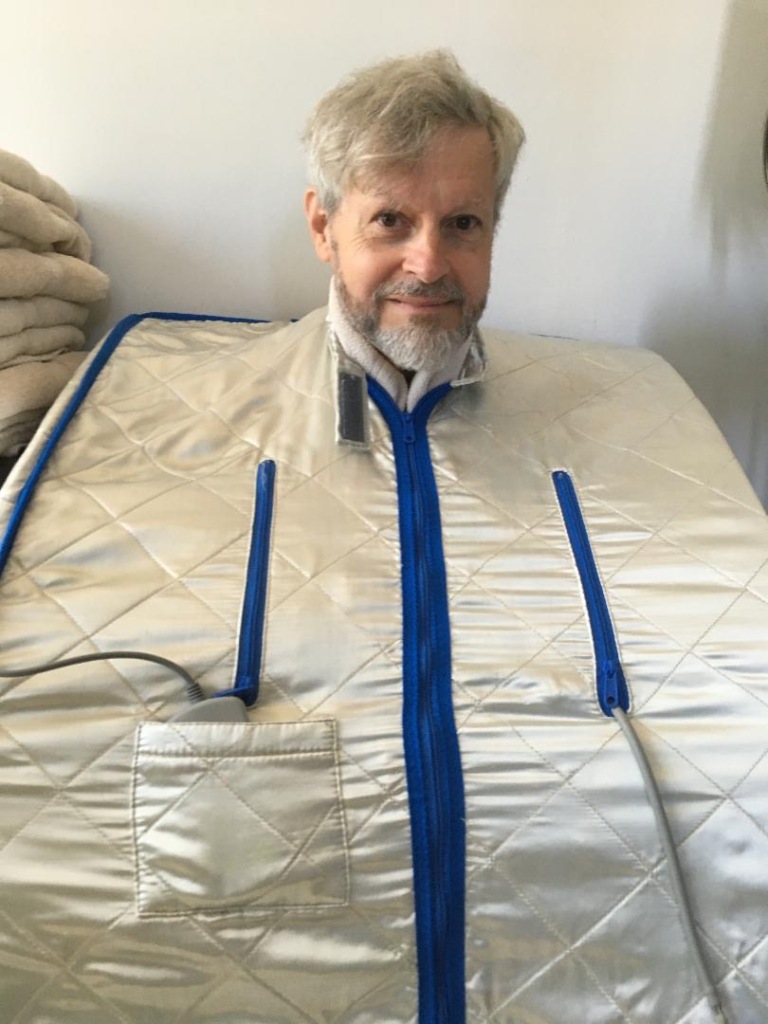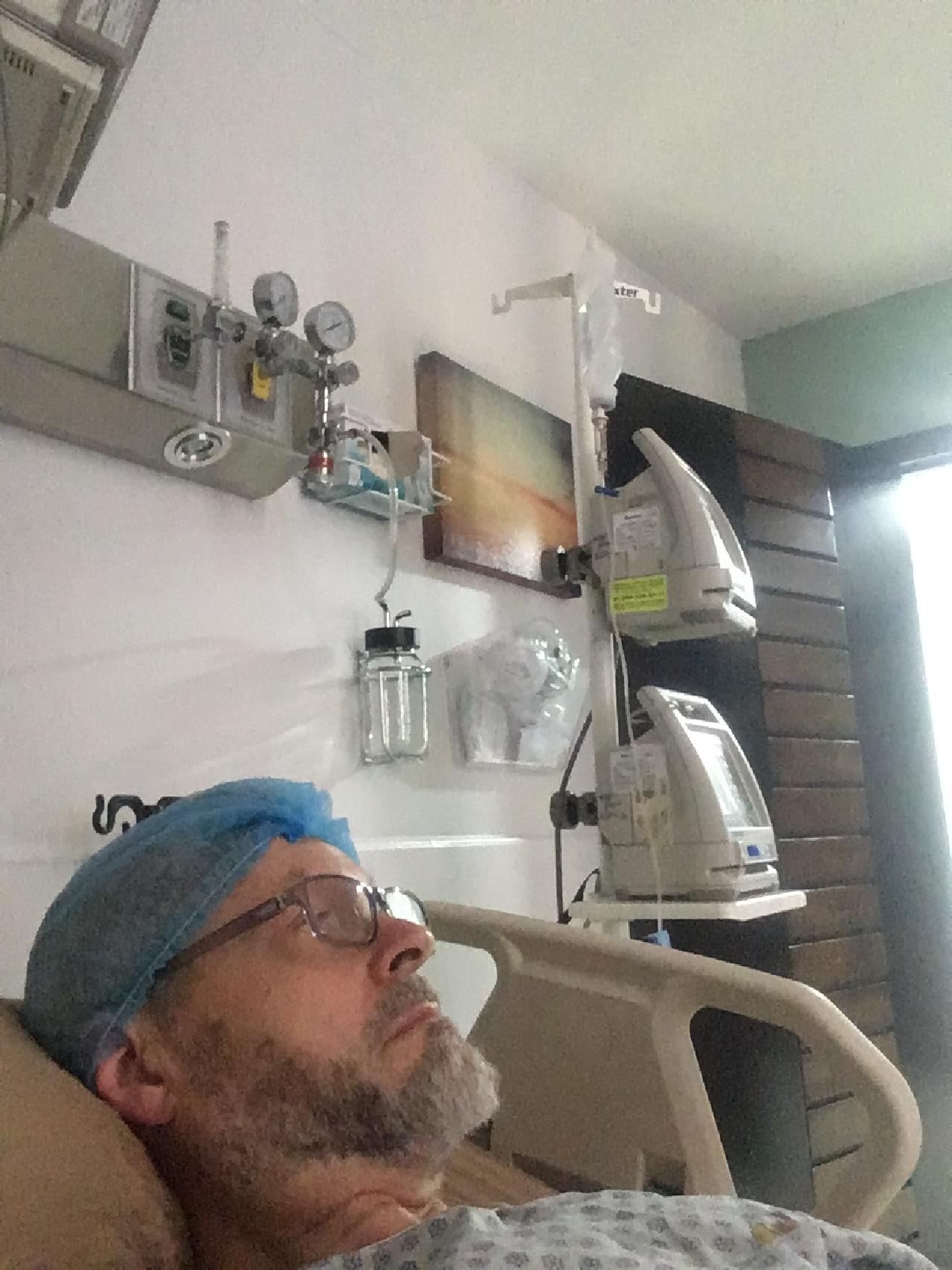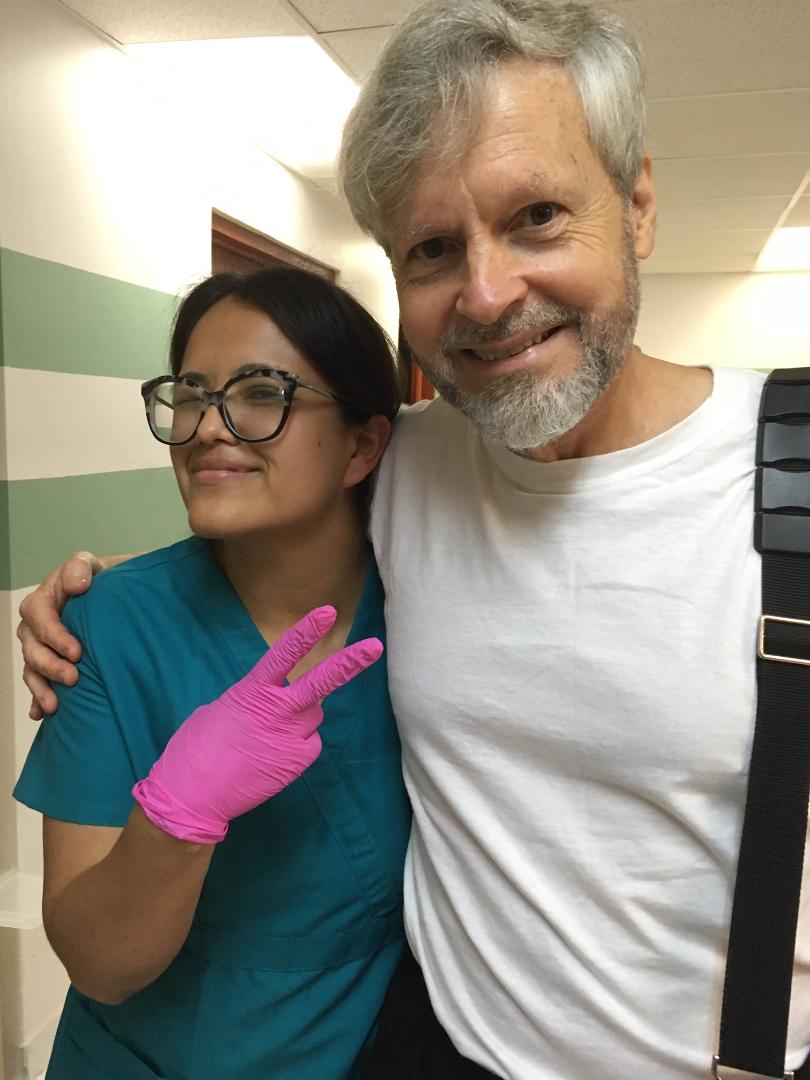I’m really not anxious about “reader volume” this time. I almost hope that today’s post passes completely unnoticed. I didn’t want to write it: I wrote it because I had to. And I wrote parts of it in excessive haste or with excessively tropological sarcasm. I did that because I wanted to finish. I feel a spiritual nausea coming on this morning as I review the weeks that brought us here. And with the luminous “holidays” at hand… oh, yes, the holidays! Like anyone else, I want to weave an insulating cocoon around my wife and son and me for a few days. I’m indeed grateful for the opportunity offered by the calendar. For the rest of it, for the “Happy Holidays” emails from people I haven’t seen in decades… damn them all for pitiful fools. And damn me for seeing more than was intended for fragile human eyes.
To those who have posted or may post comments, thank you for your time and attention. Thank you for having the stamina to look long and deep into some of the darkest pits imaginable. I haven’t answered any of you, and I don’t imagine I’ll be doing so—not on this subject. I just want to get it out and leave it behind. Maybe you’re better fortified against the pit than I am.
In the rubble of the former United States—in “Unmerica”—national elections will be as meaningless as plebiscites in the proverbial banana republic. On the ballot is Your Beloved El Supremo and… and Salinas, Chacón, Gasparo, Dominguez… “We’re a democracy, you know, amigo!” That’s your new standard, your “new normal”. Enjoy.
This isn’t to say, however, that there will be no resistance. Far from it. On the local level, resistance will now flourish as never before. As I suggested in this essay’s previous parts, the rift between Western European elite-progressive totalitarianism and the belief systems of the formerly weaponized minority masses—traditional Muslims, Hispanic Catholics, rural and blue-collar black populations—will widen rapidly now that the Nationalist Strawman has been incinerated in the town square. The swarthy rank and file don’t like masks. College-educated white people cling to them in adoration, but the folks I’ve seen mask-free in Wal-Mart have mostly been black males and Hispanic females. The dark rank and file don’t want drag queens reading to their children at the library. College-educated white people have attempted to float such quasi-moralistic claptrap as a solvent of conventional Christian values—and they’ve done so, indeed, with spectacular success, much of it engineered from within the white Christian church; but our brethren who live closer to Mother Earth (and who may actually have some of her gritty skin beneath their fingernails) aren’t having it.
We can join them to say “Hell, no!” at Town Hall meetings, and our selections of mayors and state representatives may reflect our fury. Securing the representation of Podunk County for Montague “Poke” Mahone the Third, white socialist wonderboy (married to a Native American sociologist), isn’t really worth the cost of a Dominion-caliber voting system. Regional elections don’t particularly interest the revolutionaries (except for district judgeships). The central government, you know, can always crush counter-revolutionaries if it so chooses. With fleets of drones to locate targets and Humvees of stormtroopers (now brought home from Waziristan to wage war on their cousins) ready to roll, unruly rioters in Joplin, Missouri, wouldn’t offer so much as a training exercise for “our brave military”. Yet the optics of such beyond-the-beltway massacres and Bloody Sundays wouldn’t be good. President Vandal ordering the execution of 8,000 black folks or of 12,000 Muslim immigrants… hmm. Some of the state governors, at least, would begin to shy away. Some of the stormtroopers wouldn’t trigger their cousins on cue. The dictatorship would risk becoming a transparent tyranny. Too early for that play, perhaps.
So what’s the next move on the board the Vandal? If we remain in control of our towns and hamlets, how does our new master, his old master—the Puppeteer—bring us to heel? What if, for instance, Xi Jinping, unmoved by President Vandal’s public-relations problem, orders him to pursue the sophisticated, pincer-like vaporization of ringleaders on a hit-list? What if, for that matter, Chairman Xi insists on offering the assistance of thousands of PLA stormtroopers, who have no cousins on these shores and are well rehearsed, besides, in clubbing and bayoneting women and children in Xinxiang Province and Hong-Kong?
I have been somewhat glib in trying to paint the scene in broad strokes… but I promise you, it isn’t excessively reductive to represent life under Unmerica’s new (first?) president as life in one of Xi’s satrapies. An article posted by Peter Helmes drops the names of a few European billionaires most intricately involved in Western civilization’s overthrow. They don’t sound terribly Chinese. H.J. Schellnhuber, Stefan Rahmstorf, Ottmar Edenhofer, Claudia Kemfert, Uwe Schneidewind; Gerd Müller, a chief architect of Angela Merkel’s paternalistic oligarchy; Frithjof Finkbeiner and his son Felix, creators of “Fridays for Future”, “Scientists for Future”, and the ongoing Greta Thunberg fiction in general; Dr. von Hirschhausen and Maja Göpel; George Soros, of course, “who with his thousands of non-mandated NGO’s” influences global politics significantly… such are the figures that a savvy European analyst would associate with the Club of Rome, and that are more often denominated as the Davos set on this side of the pond. “But who is the strategic godfather of all these ideologues?” questions Helmes. “Standing at the hierarchy’s peak—far above even Bill Gates and David and Richard Rockefeller—is the Canadian multi-billionaire Maurice Strong”… and Strong’s ties to Communist China are indelible, if not purely Marxist. Beyond the Strong family’s commitment to a dictatorship of the proletariat (as interpreted by a dictator) nestles a pathological hatred of evolved human beings, as if we were far kinder to the planet when we were apes whose life-expectancy scarcely broke twenty years. And if Bill Gates doesn’t reduce our minds fast enough (for time is of the essence) to that lemur-like state with digital exo-intelligence and injections of uncertain content, then… well, there’s always the termite model on Xi’s drawing board.
It’s beyond my ability—and, frankly, little to my taste—to autopsy global conspiracies. My brush does broad strokes only. To me, the ultimate godfather of megalomaniac takeover in our time isn’t Soros, or Gates, or Strong, or even Xi Jinping, but rather the same culprit as gets up to such things at all times: Satan. That’s why no blessed meteorite just happening to drive Xi’s skull ten miles below the earth’s crust would really solve very many problems for very long. It’s also why a President Vandal, if miraculously rid of the worldly creditor who owns his carcass, would have that sorry hide auctioned off to another master within a week. In a way, none of this matters. If Judas were not to exist, we would have to un-invent his brother in our mirror.
Yet until we reach eternity, the day we occupy is always this single shriveled day—this minute of this hour. We are here and now. On this day and at this hour, it’s Xi Jinping who would rule the universe. He’s the present Mao, the present Genghis Khan. Likewise, our senile President Vandal, a grifter and a bravo by nature and by trade, is Xi’s hired tough at this moment; so our children, on this day of our Lord, need protection from this domestic despot who serves that global tyrant. The succor we seek would be Heaven’s from the Evil Domain if the hour had come for every man, woman, and child of us to join hands and enter the Light at one step. But since this particular hour is only engraved with the names of a few (as the next hour will have a few more, and the next a few more), let us see if another man like ourselves—in the image of Jesus casting the shadow of Judas—might be persuaded to save a child here and there. Let us try to act rather than merely curl up and die
Someone like Vladimir Putin could be our man. Oh, he’s no saint, no, and he may well be another of the Devil’s chief lackeys… but so may any one of the relatively nameless vultures who circle our civilization in high bureaucratic office. Vlad is a dismal figure, I know, upon whom to hang any hope; but I see no other locus of earthly power anywhere who hasn’t signed away his soul ten times in blood. Putin, perhaps, has only done so eight or nine times.
Yes, I’m aware of “the list”. The poisoning of Aleksandr Litvinienko, the bludgeoning of Mikhail Lesin, the Mob-style hit of Anna Politkovskaya… it’s hard to imagine Dante’s locating Putin anywhere better than intermediate Hell. But… well, maybe intermediate Hell will have to do for now, since the jackals slavering over our children are all pouring from Satan’s mouth in Hell’s Pit. We santini who can’t sully our hands in anything morally equivocal—such as incarcerating traitors or executing murderers—may have to contract out our enforcement to the nachalnik of contract killers… or else watch our children be devoured. The truth is… well, the truth is this: men such as we should never have sired children. We weren’t men enough to stand up and kill our children’s killers. We just sing hymns. So here we cringe… and here lie our children with their throats bared to the knife. And there’s Putin (and in yesterday’s shadow, the Mossad, and—once upon a time—a CIA not yet neutered by careerist bureaucrats).
If Putin himself is soon taken from the scene by his mortality (and, please God, may Xi and Soros and Gates not be far behind!), then another Russian nationalist of his stamp would do. Imagine a Putinesque premier, offered harbor privileges in Texas or mineral rights in Oklahoma or an automobile plant in Alabama. Such a high-profile collaborator in American enterprise would be hard for the Vandal and his Beijing masters to reject on “moral” grounds; for Putin is ostensibly of their plundering swarm, and is already doing a ripping oil business with another hell-bait butchering despot in Venezuela. As Xi’s most visible buddy in war games fantasizing over the annihilation of earth’s human inhabitants in large numbers, Putin has earned his own Vandal letter-jacket. He’s a cutthroat, like the rest of the team. I’ve admitted that.
Yet Putin, or the next Russian nationalist to replace him, could also conceivably pose a major deterrent to President Vandal’s firebombing of his own citizens. If some of us are paying tribute to the Russian Vandal, then we’ll have every right to summon his defense against Xi’s kowtowing-satraps (and Xi himself). For I say it in a whisper to those few who continue to follow this dark conversation: I cannot believe that Vladimir Putin loses any love on Xi Jinping. War games? Of course Russia joined China in war games! Russia is something of an extra-large Taiwan in Xi’s glazed stare: how better to handle the situation than to pal with the Beijing juggernaut for the time being? Terrify the Yanks, win a few concessions here and there (knowing that Chinese promises are written on the wind with water), peer into your rival’s arsenal, get to know your rival’s tactics, let your rival believe he’s stealing similar looks into your sanctuary… it’s really quite brilliant. Quite un-American, in any “post-Cold War liberal America“ sense.
Putin is a nationalist, a Russia-first bully. He is that at the core of all his machinations and assassinations. He’s not a communist—not of the Xi stamp. That is to say, he doesn’t lust over visions of an insectified world swarming in indistinguishable millions before a hundred-foot gold likeness of himself. (And yes, children, that’s communism: that’s its final, “real life” form on this sick planet.) Putin wants Russia self-sufficient and feared enough to keep intruders at bay. He’s a Mob boss whose passion is for the famiglia. I know that the American conservative intelligentsia scoffs at such analyses. Frank Gaffney and Diana West, for instance—and there are no two minds whose insight I more respect—recently underscored Putin’s communist bona fides on Secure Freedom Radio by referencing his remark about Joe Biden: that Biden would be easier for him [Putin] to work with than would Trump because Biden’s beliefs are more “Soviet” (not Russian: Soviet). Alas, I think that interpreting such utterances at their most transparent level typifies our collective error. I understand the remark as follows. “Westerners with totalitarian notions readily go along with power plays that shortcut democratic participation. Joe Biden is one of those Westerners, and I’m interested in getting the upper hand where I can. Therefore, I’d like to work with a useful idiot who can be suckered into giving me what I want as he gleefully tramples down his nation’s conventional restraints.” Only an ex-Soviet could fully appreciate the extreme convenience of dealing with an “American Soviet”. Putin is an opportunist, not an ideologue.
So… say that President Vandal and his vulturine, life-sucking Health Minister Fauci (whose name means “jaws” or “maw” in Italian) were to decree that all citizens must be vaccinated with… whatever’s on the day’s menu. (Something under your sink, perhaps.) Say that your state refuses to enforce universal compliance. Say that the Vandal (with Xi pulling one set of strings, and the ghoulish Life-Sucker another) makes a Little Rock moment of the situation, sending in the National Guard (SS Division) to strap people down house by house as Mengeles in training load and empty syringes. Say that bullets begin to fly (and they would, you know). And then? And then? Wouldn’t it be nice to have an Uncle Vlad looking over everyone’s shoulder? If Xi can send in his PLA advisors, fresh from massacring Hong Kong, to volunteer assistance… why, then, Uncle Vlad can send in his advisors, too. “Not so fast, tovarishch!” They bring a tank, we bring an anti-tank gun; they bring a chopper-gunboat, we bring a surface-to-air missile.
I’m wondering if the state of Texas or the state of Georgia couldn’t borrow such toys from my friend Vlad. The Vandal has all of the toys produced and stockpiled with our tax money… but now our Uncle has called the raise—and raised again. Another dirty little secret: most of these made-in-the-USA toys are now outdated and inferior. Vlad has better stuff, frankly. Fifty years of subversion by the Vandal and his fellow partners and pillagers have actually left very little good stuff in our arsenal, much of that little rusted out by nameless wars in sandy deserts. Meanwhile, Vlad may just have amassed more and better stuff even than the Chinese. He has oil but otherwise no economy, he has an aging and thinning population (as will China, believe it or not, in just a few years)… but he also has state-of-the-art Armageddon hardware galore. People said it was a foolish investment. Now it’s the single game-changer on a board where Communist China occupies most of the strategic squares.
I’ll take Vlad, please. I don’t have a nation any longer. It dried up and blew away. I have no president. A disgusting, senile thug and career lackey is fumbling with the presidential seal bestowed upon him by the most inhuman regime to pollute the planet since Genghis Khan’s reign. I have no flag. I have no anthem. I salute nothing of this world any more, because this world no more acknowledges the rights given to me by God. What I have is an either/or choice of cutthroats to invite into my home. In that case… I’ll take Vlad.
I’ll take the Russian hit-man over the Chinese mass-murderer. I’d rather be a dog who eats at the bony carcass after the Russian wolves have their fill than the two-billion-and-forty-sixth ant in Precocious Boy’s ant farm, his weary eye following all our movements through a glass panel as he decides which tunnel to collapse before supper. I’m learning Russian, not Chinese. And if I have to absorb a pecking-order smack to the rear of the line in order to ensure that my children aren’t tied down and infused with Gates/Fauci eugenic sterilant, I’ll take it in silence, conceding that it wasn’t fully undeserved. I should have done more, when I still had the chance, to purge my society of the white “Christian” all-tolerant progressivist virus. I should have been more of a man—should have unleashed a little more “hate speech” when it was due. I hate liars; I hate cheats; I hate abusers of children and innocents; I hate self-coddling cowards disguised as spiritual illuminati; I hate egotists and hypocrites who promote “science” only insofar as institutionalism shuts down open inquiry. I am full of hatred… and some of it is left over for myself.
So… this loathsome Vlad, this buccaneer with raped riches gleaming at his ears and his fingertips—I’ll take him, if I must have a worldly captain. And when I can take him no longer, he may throw me to the sharks, and I’ll gratefully meet my maker. But the conundrum, my dears—if you have followed any of this wild rant—isn’t about the Kingdom of Heaven. It’s about how you can save some of the children you brought into a here-and-now where you allowed a trap to be laid for them… and you are not Jesus, and you do not walk on water. You did some bad things, and you are left with two bad options. Yours is not to pretend now that you’re Heaven-pure—not after you betrayed the children.
I’ll take Vlad. I will certainly not take the vile, fumbling, all-fingering Vandal. Not now, not ever.









